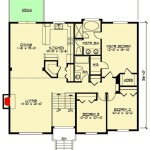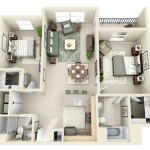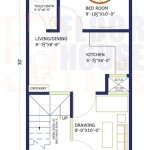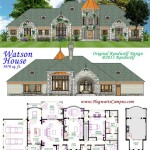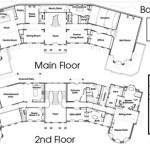Accessory Dwelling Unit House Plans: A Comprehensive Guide for Creating Livable Spaces
Accessory dwelling units (ADUs) are becoming increasingly popular as a way to create additional living space on a property. Whether you're looking to house extended family, generate rental income, or simply provide a separate space for guests, ADU house plans offer a versatile and efficient solution.
Before embarking on your ADU project, it's crucial to understand the basics of ADU house plans. These plans provide detailed instructions for the design and construction of your ADU, ensuring that it meets all building codes and regulations.
Choosing the Right ADU House Plan
Selecting the right ADU house plan is paramount. Here are some key considerations:
- Size and Layout: Determine the size and layout that best suits your needs. Consider the number of bedrooms, bathrooms, and living areas required.
- Location: Choose a location on your property that allows for privacy and functionality. Consider factors such as access to utilities, sunlight, and views.
- Architectural Style: Select an architectural style that complements your main house and the surrounding neighborhood.
- Budget: Set a realistic budget for your ADU project. Consider not only construction costs but also permitting and utility expenses.
Types of ADU House Plans
ADUs can be classified into various types based on their location and design:
- Attached ADUs: Connected to the main house, providing easy access and shared utilities.
- Detached ADUs: Separate from the main house, offering more privacy and independence.
- Garage Conversions: Converting an existing garage into a livable space, often with minimal structural changes.
- Basement ADUs: Utilizing the basement area to create an additional dwelling unit.
Key Features of ADU House Plans
Well-designed ADU house plans incorporate the following key features:
- Efficient Use of Space: Optimizing space planning to create a functional living environment.
- Natural Lighting: Incorporating windows and skylights to provide natural light and reduce energy consumption.
- Accessibility: Ensuring accessibility for individuals with disabilities, including wheelchair ramps and wide doorways.
- Sustainability: Employing energy-efficient appliances, insulation, and eco-friendly materials.
Obtaining Permits and Approvals
Before constructing your ADU, it's essential to obtain all necessary permits and approvals from local authorities. The specific requirements may vary depending on your location, but typically involve:
- Building permits
- Electrical and plumbing permits
- Zoning approvals
- Homeowners Association (HOA) approval (if applicable)
Conclusion
Accessory dwelling unit house plans offer a flexible and efficient solution for creating additional living space on a property. By carefully considering your needs, selecting the right plan, incorporating key features, and obtaining necessary permits, you can build a functional and comfortable ADU that enhances your property's value and provides a valuable asset to your living situation.

Adu Plans

Exclusive Adu House Plan With 2 Bedrooms 430801sng Architectural Designs Plans

Small House Plans Add Flexibility To Your Home With Adus Houseplans Blog Com

County Standard Adu Plans How To Plan Small House Floor Accessory Dwelling Unit

4 Adu Floor Plans That Will Maximize Your Property Maxable
House Plan Of The Week Modern Adu Builder

2 Bedroom 1 Bath Adu Floor Plans 600 Sq Ft Turnkey
County Standard Adu Plans
Accessory Dwelling Unit Floor Plans Superior Adus
Accessory Dwelling Units City Of Stockton

